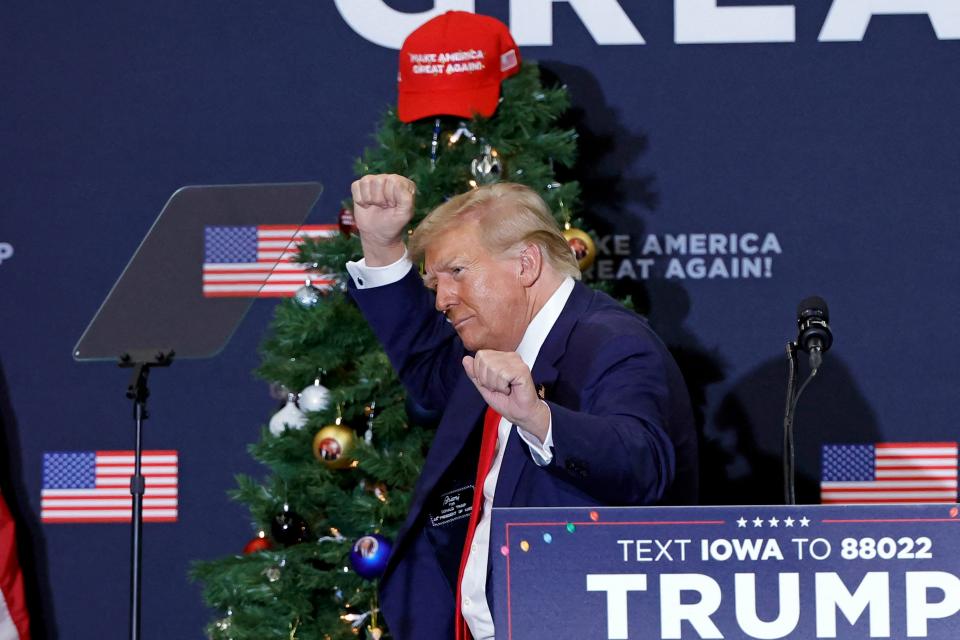Supreme Court could save or erode the Constitution in Colorado ballot case
The Colorado Supreme Court has performed a public service.
Not by removing a candidate from the presidential primary ballot but by setting up for the U.S. Supreme Court an unresolved issue that has enormous consequences for the future of the republic.
The high court should disregard the popular call to simply set aside explicit constitutional language and “let the voters decide.”
No one advocated that the courts allow Arnold Schwarzenegger to run for president and “let the voters decide,” regardless of the constitutional bar on anyone who is not a natural-born citizen, or that they allow Ronald Reagan to run again and “let the voters decide,” regardless of the constitutional bar on a third term.
But rules-breaking norms are gradually settling in.
The question the Supreme Court must answer

The claim that the Colorado ruling infringes on voters’ rights to decide presidential eligibility is ironic, considering that former President Donald Trump’s average disapproval ratings have consistently exceeded 50% since he left office.
If the immediate practical question before the courts — whether the former president should be allowed to run again — were actually put to voters, they might well vote to bar him. But they will have no opportunity to cast that vote.
The crucial question for the U.S. Supreme Court is how to implement the explicit constitutional language barring office-holders who have “engaged in insurrection or rebellion” against the Constitution after taking an oath to support it.
What qualifies as an “insurrection?”
While the Confederacy’s attempt to overturn the Constitution had access to immeasurably greater resources, it also had a limited goal, seeking not to break the core processes of the national government but instead to secede and remove itself from those processes.
It is plausible that the framers of the 14th Amendment would regard today’s facts, as summarized by the Colorado courts, to be both unimaginable in 1868 and disqualifying for the presidency.
It's reckless to normalize this behavior
Today’s assessment of the facts of Jan. 6, 2021, should extend far beyond that moment and indeed far beyond the next election. The towering issue is how any decision will guide campaigns and presidencies for many decades to come.However legally characterized, Jan. 6 reflected Nietzsche’s “will to power.” It was not a heat-of-the-moment riot but a deliberate and dangerous show of strength aimed directly at national leadership and the constitutional transition of authority.
The U.S. Supreme Court should consider the consequences of normalizing such events.
It should respond to strength with strength and exercise its responsibility not only to interpret the Constitution but to enforce a constitutional provision designed to protect the constitutional order itself.
Trump remains on Arizona's ballot: Why you should cheer
If the court were to establish, directly or indirectly, that the conduct surrounding Jan. 6 is constitutionally permissible for former and current presidents (or other officials), then future demagogues from both parties would be empowered to wound the Constitution deeply and repeatedly.
The republic may survive a difficult presidency, but it is unlikely to survive such repeated abuse.
The power of the Constitution is at stake
The court should hear not only today’s shouting voices but also the voices of those in the past who worked to build protections around the Constitution and those in the future who will rely on those protections.
The court stands today at the fulcrum of history. The next demagogue, Democrat or Republican, may have greater skills and tools, and more destructive motives.
To recognize the ruinous impact of demagogues is not to disrespect the voter but to acknowledge lessons from thousands of years of history. We all make mistakes in our personal lives, consumed by momentary passions.
Societies make mistakes too, and constitutions exist to provide steady guidance through moments of social passion.
The United States is historically exceptional in being founded on a single powerful and relatively stable document. But history also shows that such documents are fragile and have no more effect than the persons who enforce and execute them.A Supreme Court decision now would be honored. But if it declines to act decisively and then revisits the issue in a few years, will its words still carry the same force?
Justices should consider this question carefully. The moment for action is now.
Mark Stegeman teaches economics at University of Arizona's Eller College of Management. He served on the governing board of the Tucson Unified School District for more more than 10 years. Reach him at markwstegeman@gmail.com.
This article originally appeared on Arizona Republic: Supreme Court must act quickly to save the Constitution from Trump

